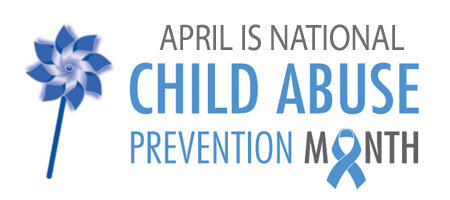G.L.O.B.A.L. Justice Children’s Advocacy Project is committed to supporting and empowering vulnerable children around the world through advocacy and research as well as events to raise awareness about children’s human rights.
April is National Child Abuse Prevention Month
This month, we recognize the importance of uplifting and advocating for families and children to prevent child abuse and neglect.
What You Might Not Know
About Child Abuse
It is estimated that at least 1 in 7 children in the US has experienced child abuse and/or neglect in the past year
Rates of child abuse and neglect are 5 times higher for children in families with low socioeconomic status compared to children in families with higher socioeconomic status.
Adult survivors of childhood abuse are more likely to experience mental health difficulties, including depression, anxiety, bipolar disorder, PTSD, eating disorders, and substance use disorders.
What Are the Risk Factors for Child Abuse?
Child abuse and neglect occur in all segments of our society, but the risk factors are greater in families where parents:
Abuse of alcohol or drugs
Isolation from families or communities
Difficulty controlling anger or stress
Parents or caregivers appear uninterested in the care, nourishment, or safety of their children
Parents or caregivers seem to be having serious economic, housing, or personal problems
What Is Classified As Child Abuse?
Any action or failure to act that results in harm or possible harm for a child, including physical abuse, sexual abuse, emotional abuse, or neglect. Abuse often involves various forms and more than one type of harm to a child.
Physical Abuse: deliberately using physical force that injures or could potentially injure a child.
Sexual Abuse: attempting (or succeeding in the attempt) to exploit a child for sexual process
Child Neglect: failing to meet the basic needs of a child
Child Psychological Maltreatment: intentionally conveying that a child is worthless, flawed, unloved, unwanted, endangered, valued only in meeting others’ needs.
Reporting Child Abuse
Anyone can be a reporter for child abuse and you can always stay anonymous. However, if you are afraid you can tell a mandated reporter. A mandated reporter is someone who is legally obligated to report child abuse. People who are mandated reporters are child care workers, health care professions, social services such as therapists and social workers, and police officers.
Who To Contact
National Child Abuse Hotline: 24/7 Call/Text-1(800)656-4673
Chat Live: https://www.childhelp.org
National Domestic Violence Hotline: 24/7 at 1-800-799−7233
National Sexual Assault Hotline: 24/7 at 1-800-656-4673
National Suicide Prevention Lifeline: 24/7 at 988-273-8255
Substance Abuse and Mental Health Services Administration (SAMHSA) Helpline: 24/7 at 1-800-487-4889
Crisis Text Line: 24/7 text DS to 741741
How To Prevent Child Abuse
Educate yourself and know what child abuse is
Support Prevention Programs
Know the signs
Report it
Examine your own behavior
Spend quality time with your children
Involve your community to bring awareness
Bring awareness on your social media
GLBL MRKT:
Flora by Mari Postcards
Flora by Mari postcards are created by a passionate child artist and are sold in the GLBL MRKT. These beautiful postcards support the work of the Children’s Advocacy project.
Fighting TRAFFICKING OF CHILDREN AND YOUTH
G.L.O.B.A.L. has conducted trainings and seminars on fighting trafficking of children and youth in our communities and worldwide. These sessions are available to church, business, health, law enforcement, school, and other groups of various ages.
SUICIDE PREVENTION FOR CHILDREN AND YOUTH
G.L.O.B.A.L. has partnered with Foundations Church to present three community forums "Every Life Matters" that looks at the concerns of increased suicide rates in our communities and how to prevent suicide particularly among youth.
UNINTENDED CONSEQUENCES OF COVID-19 FOR CHILDREN & WOMEN
G.L.O.B.A.L. has launched a one year comparative study that looks at the Unintended Consequences of COVID-19 policies and practices on children and women in vulnerable populations. This study considers the topics of education, employment, and health in the United States, Mexico, Uganda, Cambodia, and India. We look forward to sharing updates on this project in Fall 2020 and Spring 2021 as well as a full presentation of our final research paper in Summer 2021.
SOCIAL-EMOTIONAL LEARNING FOR LOW-INCOME CHILDREN
G.L.O.B.A.L.'s Education Policy Fellow Vanessa Ruiz Salazar is conducting a study considering the topic of social-emotional learning and the impact on children in low income communities. This education topic is particularly relevant in light of COVID-19 and the increase in distance learning and other recent academic and societal changes for children.
CHILDREN CAUGHT IN CRISES: PATHWAYS FOR UNACCOMPANIED AND SEPARATED CHILDREN
G.L.O.B.A.L Fellow in Children's Advocacy, Sarah Bond, presented her study on pathways for unaccompanied and separated children, particularly refugees and migrants at the border. This study considers not only the crises these children face but also the work of various advocacy groups and key recommendations to be better address these children's humanitarian and human rights concerns.
3rd annual child abuse prevention forum
A Conversation on Child Abuse Prevention: A Personal Story for Community Advocacy
Join G.L.O.B.A.L. Justice on April 30th, 2021 for a conversation on child abuse prevention. This event will feature a personal story for community advocacy.
children’s advocacy Forum: The positive impact of social-emotional learning on vulnerable student populations
G.L.O.B.A.L. Justice hosted our online Children’s Advocacy Forum on World Children’s Day — November 20 from 6-8pm MST. This event featured Vanessa Ruiz-Salazar, our Fellow for Education Policy, who shared her research on Social Emotional Learning and its Impact for Vulnerable Students. View the video by clicking the button below.
Children’s advocacy forum: Children Caught in Crises - pathways for unaccompanied and separated migrant children
G.L.O.B.A.L. Justice presents the Children Caught in Crises Forum. his video-conference features Sarah Bond, G.L.O.B.A.L. Fellow for Children's Advocacy.













